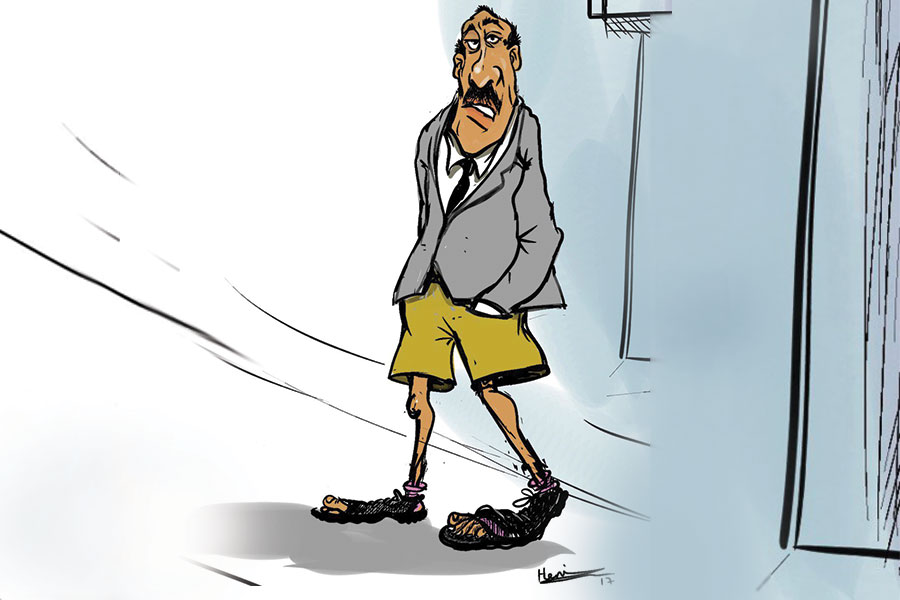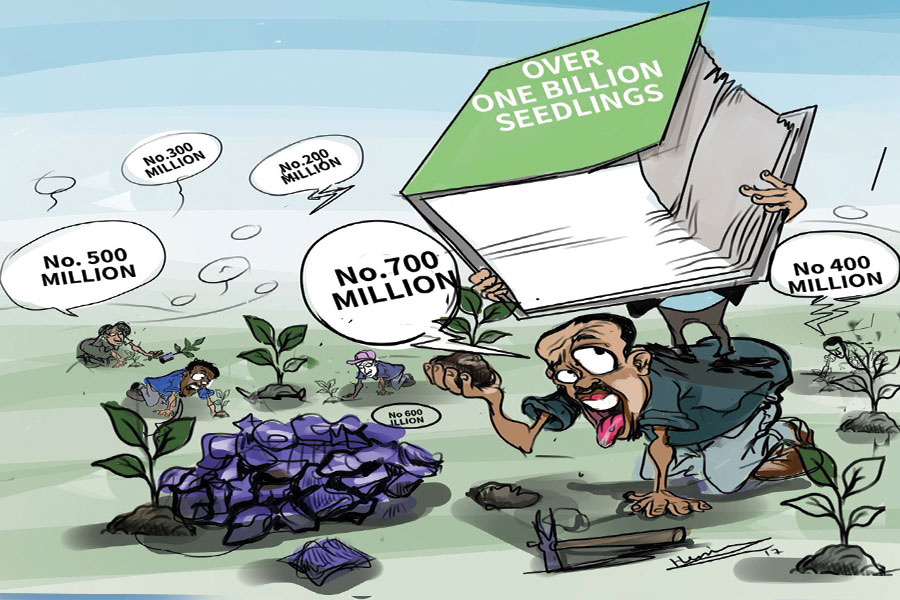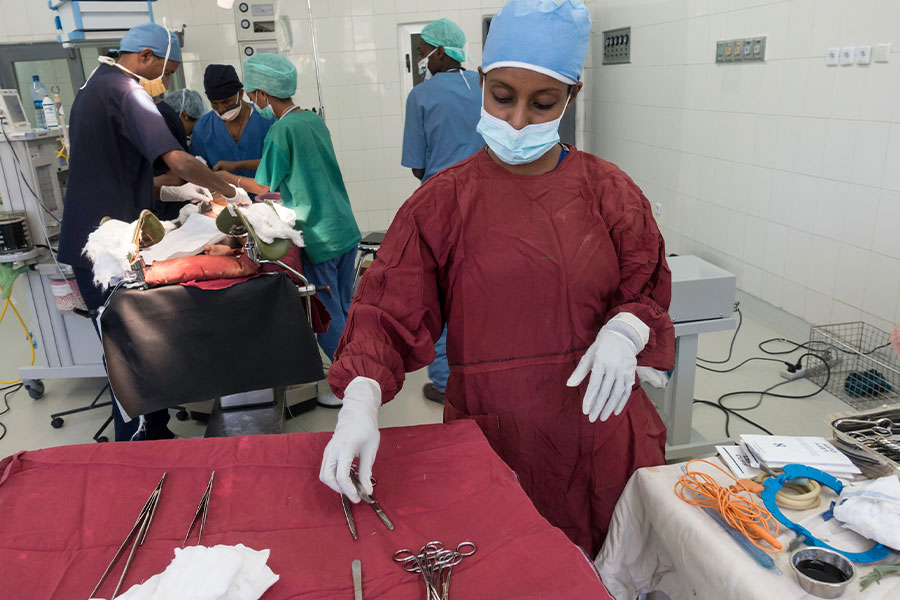
My Opinion | Aug 12,2023
Jan 26 , 2019
By Dereje T Asefa (PhD)
The vision of Prime Minister Abiy Ahmed (PhD) for economic and political progress in Ethiopia is commendable, and many of us wish him success. But a great deal needs to be done before that vision can be accomplished, as a recent experience of mine has shown.
In Norway I recently bought a surveying instrument for construction and sent it to Ethiopia for my sister, an unemployed surveyor, as a gift. I read some of the rules and regulations and calculated the tax that she might have to pay in Ethiopia based on the price offer that I got from the seller. I was confident that my sister would not have a problem if I sent the instrument through my brother, who has a formal license as a contractor.
I finished the necessary processes here in Norway, got a customs clearance, attached all the necessary documents and sent the instrument to Addis Abeba, where the problem started.
The process started once my sister went to the post office and showed the tracking code. The officer checked that the instrument was at Bole International Airport and informed my sister that she needed to pass through a series of bureaucratic processes to receive the instrument.
She went to cargo services at the airport with a letter from the post office for package identification and content verification, which went smoothly, and then was asked to go to the customs office for tax estimation and payment.
But customs officials informed her that they could not estimate taxes before the instrument was cleared for security reasons by the Information Network Security Agency (INSA), which took a couple of days before approval.
I attached the necessary documents for estimation and informed her what she would be asked to pay using the tax calculator system provided by the Ministry of Revenues. However, the amount she was asked to pay by the tax estimator was 10 times more than what I had calculated.
The estimator tripled the price instead of using what I paid for the instrument in Norway. My sister was also asked to pay twice the normal tax estimate as a penalty since the instrument was bought directly in Norway without going through the banking system in Ethiopia.
Shocked, I agreed with my sister to ask the post office in Ethiopia to return the package as my sister could not afford to pay what was asked by the estimator.
I contacted the post office in Norway to get the instrument returned to me. But we were informed that the instrument would not be returned to Norway but instead be registered as an illegally imported good and sold through an auction. We had no choice but to pay the tax for my sister to make use of it.
This whole process took four weeks and involved four different government institutions. More than 15 officials participated in addition to my sister and brother, not to mention myself, through the telephone and the internet. Bureaucratic only poorly describes the inequities of the process.
Had it been in Norway, everything starts and ends at the post office. It takes a maximum of half an hour and the involvement of just one official from the post office. If a simple instrument that costs 1,200 dollars must pass through all these processes, one can guess what to expect for materials that are more expensive and up-to-date.
As the process multiplies, it will only cost the country, especially in lost productivity. Many have experienced what I described, and it is unfortunate that the flow of technology into the country is hampered as a result.
It is not surprising then that Norway is much more productive than Ethiopia. But such a system can be established in Ethiopia too, where the whole process can be finalised at the post office.
The proper collection of taxes is one of the critical foundations of a country's civilisation and development, as the Prime Minister pointed out at a new initiative to improve domestic revenue. Indeed, the impact of proper mobilisation of tax revenues has been witnessed in developed countries.
People are willing to pay taxes as long as the rates are low and collection and management are done transparently, based on facts and not assumptions.
The rule of penalty in Ethiopia should be reevaluated if the country is to get modern instruments essential for development from the diaspora. This must apply especially when one delivers customs clearance documents and receipts from countries where the rules are strict.
My experience should be an example of the challenges in the lack of a standardised way of interpretation of rules and regulations, illogical penalties, unnecessary involvement of government institutions and bureaucratic processes. Communication is also weak, with it being impossible to carry out tasks through the telephone or the internet, a problem endemic to many other public sector institutions.
These are not difficult issues to deal with as long as the rule of law prevails in conjunction with accountability and a mindset open for change. For the nation to succeed, the legal and regulatory rules, institutions and the bureaucracy ought to be improved. This will help millions like my sister have a better future.
PUBLISHED ON
Jan 26,2019 [ VOL
19 , NO
978]


My Opinion | Aug 12,2023

Editorial | Apr 27,2024

Commentaries | May 25,2024

Sunday with Eden | Mar 23,2019

Viewpoints | Aug 22,2020

Viewpoints | Oct 14,2023

Editorial | Jun 21,2025

Viewpoints | Feb 03,2024

Radar | Mar 18,2023

Viewpoints | Mar 04,2023

Photo Gallery | 133956 Views | May 06,2019

My Opinion | 133742 Views | Aug 14,2021

My Opinion | 130283 Views | Aug 21,2021

My Opinion | 128060 Views | Sep 10,2021

Dec 22 , 2024 . By TIZITA SHEWAFERAW
Charged with transforming colossal state-owned enterprises into modern and competitiv...

Aug 18 , 2024 . By AKSAH ITALO
Although predictable Yonas Zerihun's job in the ride-hailing service is not immune to...

Jul 28 , 2024 . By TIZITA SHEWAFERAW
Unhabitual, perhaps too many, Samuel Gebreyohannes, 38, used to occasionally enjoy a couple of beers at breakfast. However, he recently swit...

Jul 13 , 2024 . By AKSAH ITALO
Investors who rely on tractors, trucks, and field vehicles for commuting, transporting commodities, and f...

Aug 23 , 2025
Banks have a new obsession. After decades chasing deposits and, more recently, digita...

Aug 16 , 2025
A decade ago, a case in the United States (US) jolted Wall Street. An ambulance opera...

Aug 9 , 2025
In the 14th Century, the Egyptian scholar Ibn Khaldun drew a neat curve in the sand....

Aug 2 , 2025
At daybreak on Thursday last week, July 31, 2025, hundreds of thousands of Ethiop...
Aug 23 , 2025 . By BEZAWIT HULUAGER
The fuel industry is facing its biggest shakeup in decades as federal regulators roll...

Aug 23 , 2025 . By BEZAWIT HULUAGER
Two domestic companies, IE Networks and Liyana Healthcare, have emerged as the first...

Aug 23 , 2025 . By NAHOM AYELE
A new directive authorises state-run hospitals and clinics to outsource not only non...

Aug 23 , 2025 . By BEZAWIT HULUAGER
The federal government has turned its attention to an unlikely export sector: healthc...